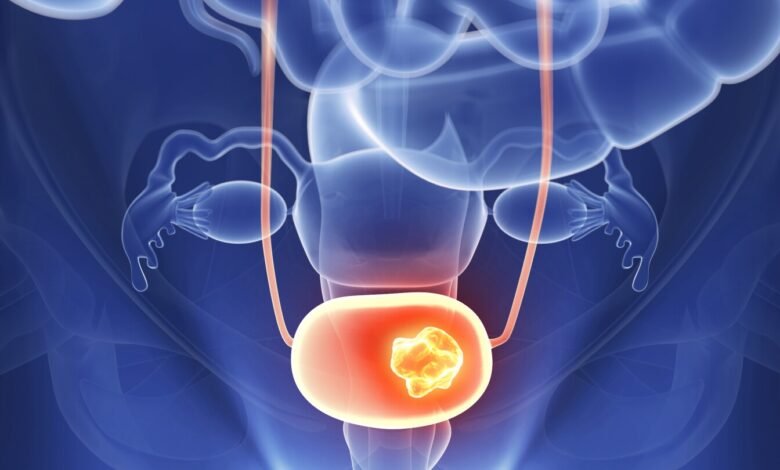Investigational Therapies For Bladder Cancer: Hope On the Horizon

Bladder malignancy, a disease that millions of people in the world can not get over, is regarded as an issue that is highly complex compared to both patients and their doctors. The achievements of surgery, chemotherapy, and immunotherapy paving the way through existing treatment options have put aside hope, yet scientists’ relentless efforts are well underway. Gladly, the scenery of bladder cancer research is filled with rare investigational therapies that may lead to the actualization of a better cure rate and improvement in quality of life. Let us examine these novel procedures with the help of the Best cancer hospital in India and see what they may bring about in the change of bladder cancer therapy.
1. Targeted Therapies
Planned therapies focus on the intervention of a few molecules that play key roles in cancer development and progression. In regards to bladder cancer, the study of the molecular targets affecting only tumor cells is ongoing and is considered a way to spare healthy cells. One appealing direction is the development of drugs that interact with RTKs (Receptor Tyrosine Kinases), the family of proteins that exert their action through signaling pathways and are implied in cancer development. The drugs targeting RTKs as inhibitors, for example, are erdafitinib and enfortumab vedotin, which have shown impressive results during clinical trials on patients with advanced or metastatic disease.
2. Immunotherapies
Immunotherapy has led to a revolution in cancer treatments because the human immune system itself has proved to be a very effective tool in destroying cancer cells. Although first approved for use in melanoma, immune checkpoint inhibitors such as pembrolizumab and atezolizumab have proved to be highly efficient in bladder cancer, and the best demonstration of this efficiency is the fact that they have been highly effective in patients who were resistant to conventional therapies. As the research continues, it also investigates mixture strategies where using checkpoint inhibitors with other immunomodulatory agents or targeting therapies is combined in order to improve response rate and prolong life expectancy.
3. Gene Therapy
The use of Gene therapy in the treatment of bladder cancer has brought the cure to the frontiers by pinpointing the identified errors in genes that cause the uncontrolled growth of tumors. One novel strategy would be to employ genetically modified patient-derived immune cells to carry out targeted ad hominem strikes against cancerous cells. Clinical trials examining the safety and efficacy of these therapies, such as CAR T-cell therapy, that would be suitable for patients who have relapsed or are refractive, offer hope to patients.
4. Vaccines
Perhaps generally, curative vaccines represent a preventive treatment modality that implies an immune system’s readiness to react against cancer cells. In bladder cancer, vaccines operating on the principle of tumor-associated antigens, e.g., the NY-ESO-1 protein, look for an immune activation that will be strong enough to attack cancer cells without affecting healthy ones. The preclinical data from early-phase clinical trials are encouraging, as the therapeutic vaccines showed acceptable safety, enhanced antitumor immunity, and a better outcome when used with other types of treatment for cancer.
5. Precision Medicine
The introduction of precision medicine brought about new possibilities for treatment approaches customized to meet the individual needs of the patient depending on their particular genetic profile. In bladder cancer, genomic profiling is the key factor in diagnosing specific mutations or expressions that lead to the development of tumors, which are then used to select the treatment best to fight cancer cells. Shots of genes combined with advanced methods of imaging and biomarker analysis offer the advantage of early detection and classification of risk as well as transplantation of targeted treatments, all of which improve patient outcomes and reduce toxicities.
6. Novel Drug Delivery Systems
Researchers are going the extra mile in synthesizing drugs, and researchers are also focusing on innovative drug delivery methods to deliver drugs to a designated location and minimize side effects. Nano-technology approaches like nanoparticle-driven drug delivery or intravesical instillation of therapeutic agent-loaded hydrogels offer highly personalized and long-lasting delivery of drugs directly to the tumor in the bladder without affecting the healthy bladder tissue. These local delivery systems indicate an optimistic outlook and their ability to overcome obstacles is to be taken into consideration as a potential treatment option for increasing patient tolerance and adherence.
Conclusion
Therapies designed for bladder cancer are promising to go beyond the traditional treatment approaches as a result of technologies developed from intensive research, creating novel paths for the eradication of bladder cancer, such as laser therapy, targeted treatments and immunotherapy, gene therapy, and precision medicine. A cornucopia of experimental approaches exists and is greatly promising for patients with this dreadful disease to have better treatment outcomes and quality of life. Still, obstacles remain, but there is a unanimous belief from scientists, doctors, and patients that they will all be working towards helping people recover from bladder cancer. As this research from the Best ayurvedic cancer treatment in India goes through the process of clinical development, our sense of hope for someday a cancer-free world becomes more graspable and realistic.




